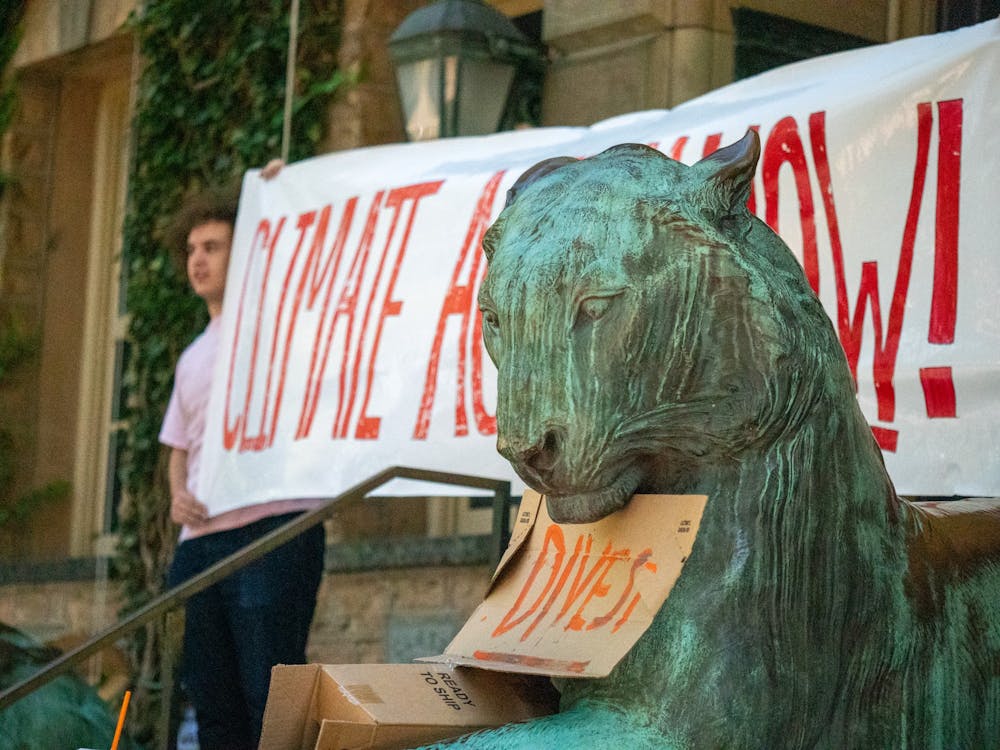One of the things I was most uncertain about as an incoming freshman was the Street. I never drank in high school, and my friend group didn’t party much, so I didn’t really know what to expect when I arrived on campus. My assumption was that I would be lost amid a sea of people much more at ease than me, and that I would head to the Street each weekend to find myself out of place and out of my element. And really, that’s all I had to go off of: assumptions. Because the fact of the matter is that until you reach freshman year, no one talks about the Street in any official capacity. Tours — even ones where parents aren’t present — dodge all questions related to Princeton nightlife. The Street closes for the entire weekend of Preview, so even if you stay an extra night with a friend, you don’t get to see what actually goes on at Princeton on Saturday nights.
It wasn’t until Outdoor Action — just a week before I started as a Princeton freshman and several months after I’d committed to Old Nassau — that I first heard straightforward information about the Street from upperclassmen. (It’s worth noting that even then, they checked with each other before speaking to make sure they were “allowed to talk about” the Street and what clubs they were in.) After months of waiting for more than a casual joke or passing funny story from upperclassman friends, I finally got some information about that part of the Princeton experience.
What was revealed wasn’t shocking to anyone or damaging to anybody’s esteem of the school. All that our group talked about was that the Street was where people went on weekends to hang out, dance, meet people and/or drink; that each club had a tap room and an overcrowded dance floor; that the “Beast” was free and generally regarded as gross; and that no one really cared how much or little you wanted to drink. Just hearing this was reassuring. It made the clubs seem like real places that friendly, fun, sensible kids went to and enjoyed. At the very least, it provided an alternative view to the anonymous “Animal House” depiction that I (and many) had in mind.
Reassuring as this was to hear before starting school, I wish I had been able to hear it earlier. Having been to most of the clubs, I now know that you quickly get at least a basic sense of the atmosphere at each one and can decide for yourself which clubs you and your friends prefer. And while bad things obviously happen to people on occasion, most people just enjoy themselves on the Street on the weekends. I’ve also felt no pressure or stigma related to drinking whatsoever and still enjoy heading to the Street with my friends.
The point is, in general, the eating club system is not something to be hidden away from visitors or prospective applicants like some ugly behemoth or necessary evil. For most people, it is a fun social outlet that becomes a memorable (or hard-to-remember) part of college. And for those who are not inclined toward the Street, there is so much else happening on campus that it’s nearly impossible to be bored. So why is Street-related information so hard to get before you make it on campus as a freshman?
It is in the best interest of both prospective applicants and the University to allow and encourage upperclassmen to be more forthcoming and open regarding the Street. For most people, myself included, this would eliminate a significant uncertainty about coming to Princeton. And regarding those for whom this information would be a dissuading factor, it is not in the University’s best interest to court people under false pretenses only to have a much higher risk of them transferring out once they inevitably discover what was being hidden from them. Obviously I’m not saying Dean Rapelye should give a speech about Prospect Avenue and which clubs have the best parties to every family in an information session. But at the very least, the University should encourage upperclassmen to speak as openly and candidly as possible to prospective students, not just on this matter, but on all facets of Princeton life.
Maybe part of the visit should include a private discussion with just the tour guide and the students. Maybe applicants should be provided with an anonymous forum to ask questions of Princeton students. In any case, just give us some straight talk; everyone is better off making well-informed decisions, and I daresay the vast majority of people who were in my shoes would realize much, much earlier that there was nothing on Prospect Avenue to worry about.
Ryan Dukeman is a freshman from Westwood, Mass. He can be reached at rdukeman@princeton.edu.








